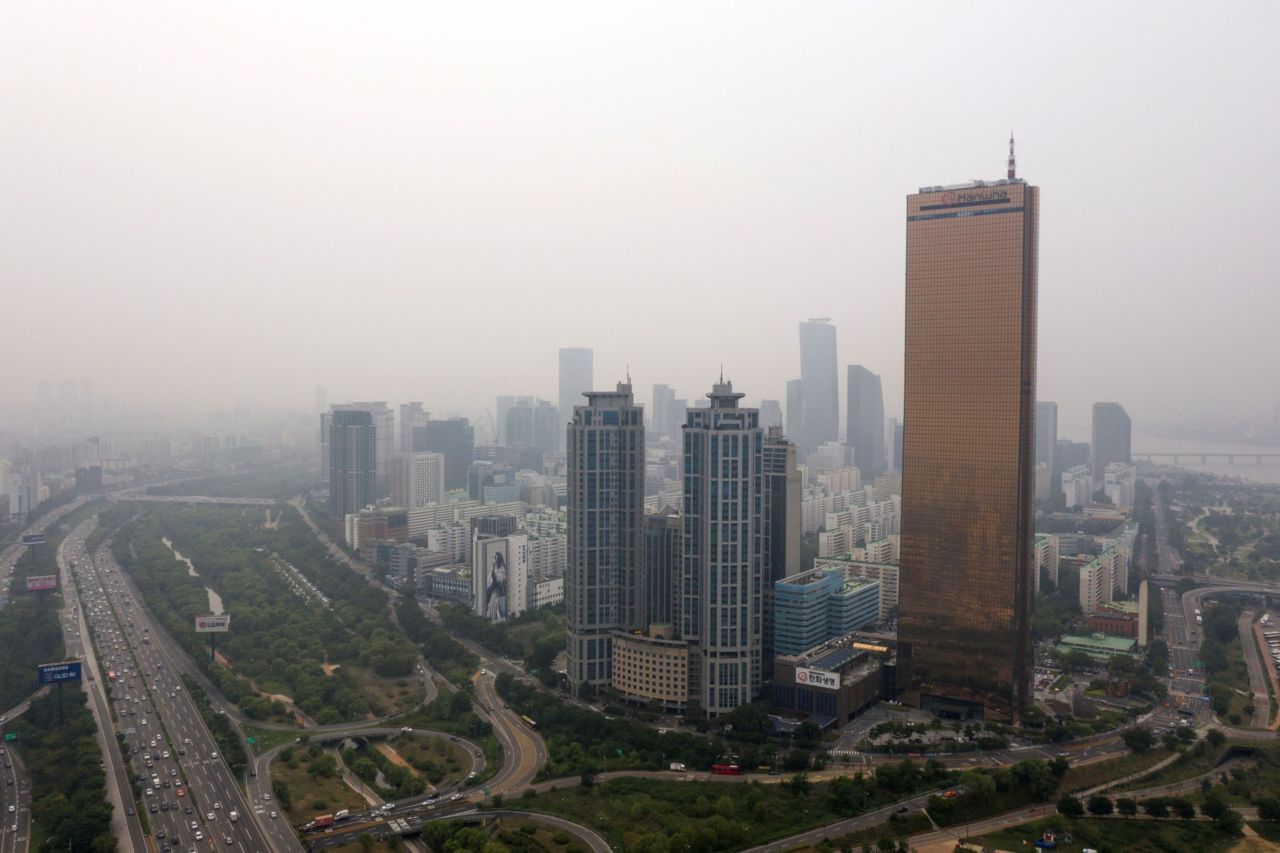 |
An aerial view of Seoul. (Bloomberg) |
The industrial outlook for 2020 is negative for eight of South Korea’s 11 major industries, in part due to the slowing global economy, according to credit rating agency Korea Investors Service on Thursday.
Sectors that fell into the “negative industrial outlook” category were construction, steel, distribution, automotive, transportation, petrochemicals, life insurance and non-life insurance.
The outlook for refiners, shipbuilders and securities rated neutral, according to the agency.
A weaker economy, lower consumer demand and the introduction of new regulations were the main factors behind the gloomy outlook, according to the 2020 Industry Outlook Review by KIS, the Korean unit of Moody’s Investors Service.
The report said China’s forced production cuts coupled with slower demand in the domestic market will make steelmakers less lucrative. Construction firms will be subject to tougher regulations concerning Korea’s real estate market, while offshore infrastructure projects will make limited contributions to revenue growth, partly due to geopolitical uncertainties in the Middle East.
The distribution sector will face a triple whammy of slow economic growth, weak consumption and intensified competition from e-commerce players. Carmakers will continue an investment spree to cope with a paradigm shift, while global demand dampens.
Air carriers are expected to suffer stagnation in the growth of outbound customers, while petrochemical firms’ business will also hit a snag with oversupply and weaker demand.
Securities brokerage firms will face tighter regulation as financial authorities are moving to curb real estate project financing schemes. The insurance sector will be clouded by low interest rates, saturated markets and the introduction of new accounting standards.
Of the sectors, distribution, life insurance and non-life insurance were assigned a negative credit outlook for 2020.
The financial pressure on the distribution sector stems from price competition, a minimum wage hike and higher rent, as well as the need for investment in online platforms. Life insurers were bracing for the adoption of the new accounting standard IFRS 17, while damage insurers’ revenue sources are expected to destabilize as more customers here tend to buy products through general insurance agents.
By Son Ji-hyoung (
consnow@heraldcorp.com)




![[Herald Interview] 'Trump will use tariffs as first line of defense for American manufacturing'](http://res.heraldm.com/phpwas/restmb_idxmake.php?idx=644&simg=/content/image/2024/11/26/20241126050017_0.jpg)

![[Health and care] Getting cancer young: Why cancer isn’t just an older person’s battle](http://res.heraldm.com/phpwas/restmb_idxmake.php?idx=644&simg=/content/image/2024/11/26/20241126050043_0.jpg)

